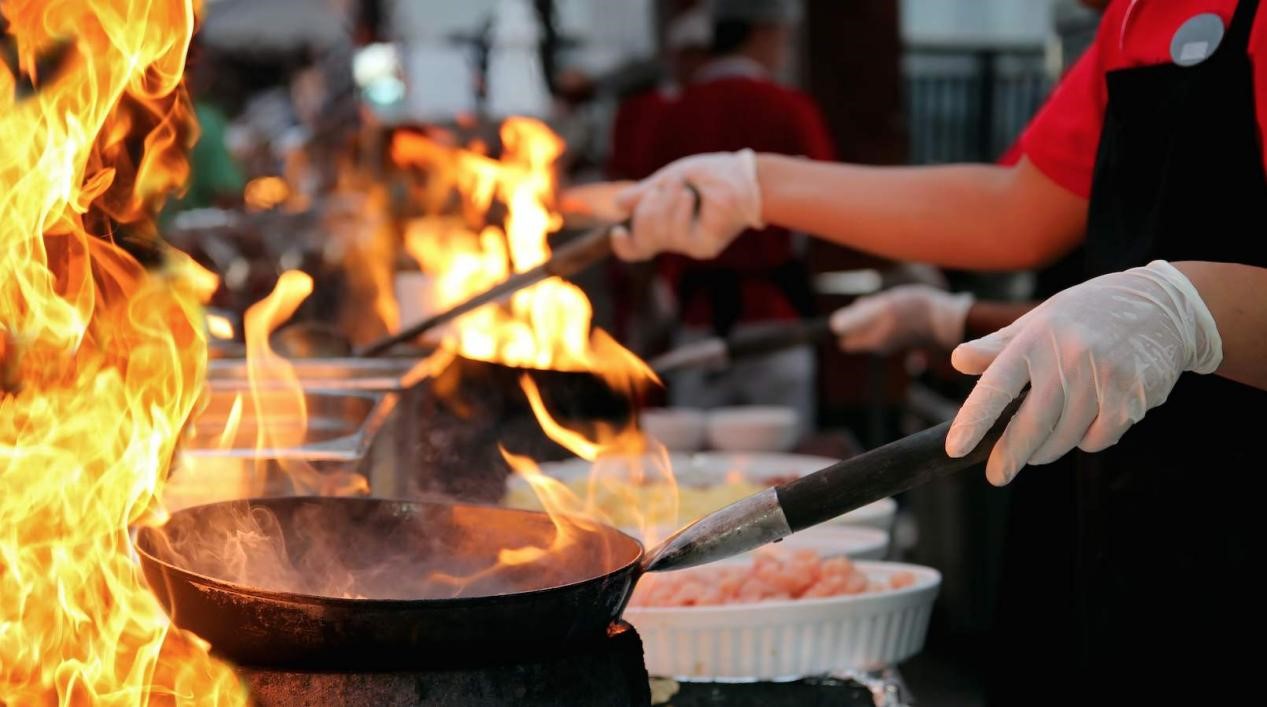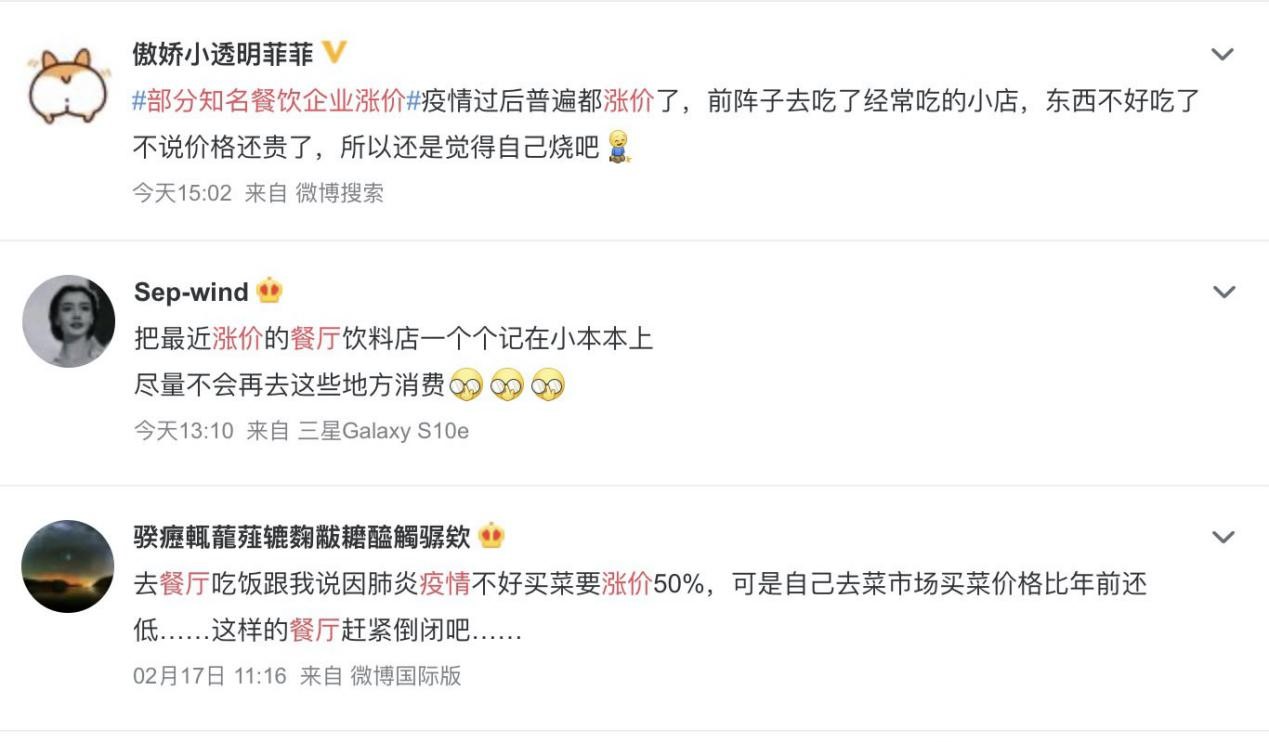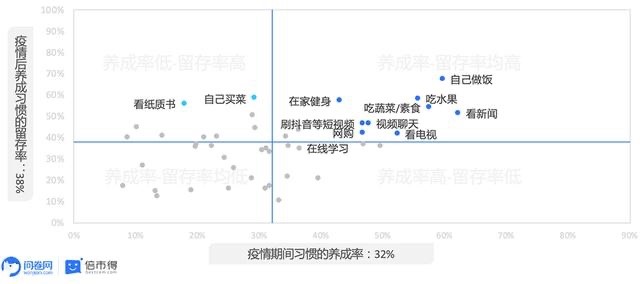It is difficult for the catering industry to rise or not.

Hot pot, barbecue, crayfish … Looking at the shocking numbers on the price list, many people quietly clenched their wallets.
Recently, a Beijing diner posted a menu on Weibo, “220+ per capita, half-blood rose from 16 to 23 yuan, eight small slices; half a slice of potato chips was 13 yuan, and a piece of potatoes was 1.5 yuan, buffet The seasoning is 10 yuan each; the rice is 7 yuan a bowl; the small crispy pork is 50 yuan a plate. “This high-priced bill from Haidilao quickly became a hot topic on the Internet.
Following Haidilao, the news that “Xicha’s various products have increased their prices by 2 yuan” has also appeared on Weibo. In addition, some heads including Sibei have been exposed to price increases Ministry of catering enterprises.
Undoubtedly, the price increase is becoming a thorn in the hearts of diners during the release of consumer demand, but this thorn may also in turn hurt the business. The Beijing Youth Daily initiated a vote on Weibo, and more than 8,336 people participated in the vote. Nearly 4,000 people said that you can increase the price, and I can not go, that is to say, “retaliatory non-consumption” accounts for nearly half.
It is difficult for the catering industry to rise or not.
The earliest price increase of “Cry Poor”?
When the price increase of Haidilao caused netizens to madly vomit, on April 7, Forbes released the 34th Global Billionaires List in 2020. At the top of the list, his wife Shu Ping ranked sixth on the Singapore Rich List.

In fact, as early as August last year, Zhang Yong, with a net worth of $ 13.8 billion, defeated the Wong Brothers, the Far East organization that had ranked first for 10 years, and became the richest man in Singapore. According to the latest list, Zhang Yong and Shu Ping’s net worth are 11 billion US dollars and 2.7 billion US dollars, respectively. Shrink a lot.
Why is this happening? Probably related to the huge cash reserves of Haidilao. According to Haidilao’s 2019 financial report data, Haidilao’s cash as of the previous fiscal yearAnd the cash equivalent was 2.222 billion yuan, and when it was listed on Hong Kong stocks last year, Haidilao raised 7.27 billion Hong Kong dollars, about 6.558 billion yuan.
The key point is that Haidilao has just received a considerable amount of loans, with the 2.1 billion yuan received from China CITIC Bank and Baixin Bank. The first loan funds were received on February 19.
Cry poor, maybe not poor, so is Sibe.
In the initial stage of the outbreak, Jia Guolong, chairman of Xibei Catering, said, “If the epidemic is not effectively controlled within a short period of time, the cash loan on Xibei ’s account can only be paid for 3 months,” triggering a collective panic in the restaurant industry And consumers ’general concerns. But now, Jia Guolong doesn’t have to worry about Xibei’s support. After receiving the Shanghai Development Bank’s 530 million credit, the Agricultural Bank has also granted Xibei 250 million yuan of short-term credit.
The head company “Crying the Poor” is useful, but the entire industry is more of small and medium-sized restaurant outlets where there is no place to cry. They lack external financial support and do not have the right to speak about price increases. Therefore, resuming work is even more difficult than not resuming work.
Ji Yi, founder of Hao Shrimp Biography, wrote in the circle of friends: “The first severe test faced by the catering industry after the resumption of work is the question of whether or not to increase prices after the cost of ingredients rises. Profits without price increases will be compressed , Price increases and face the pressure of competition. ” His concerns are not wrong. After the epidemic, consumer demand is strong, but helpless purchasing power has not improved. Once the price is increased, it is likely that fewer customers will be reduced.
The price increase or not is a fatal choice, and it is more difficult for restaurant owners to choose whether to quit or continue.
A restaurant owner said, “We are talking to the mall about renting out, but the mall is not asking to reopen the store. We are afraid that no one will dare to open it, and the mall says that we will not refund our deposit if we do n’t open.”
Everything is difficult, not only Haidilao and Sibei?
Retaliation in price increase: The premium “catastrophe” of online celebrity restaurants?
Haidilao’s retaliatory price increase, consumers are angry to pass the loss on themselves, but also vaguely worried whether it will cause the entire catering industry to follow the trend of price increases. But in fact, since the catering companies gradually resumed work, many people have discovered that the restaurants or restaurants that they frequent often increase their prices slightly or in disguise.
According to a reporter from the “Financial Investment News” who visited a catering company in Chengdu, the grandmother’s house at the IFS mall on Chunxi Road, the popular fairy grandmother lowered the price, but at the same time the price of some other dishes was raised. Qiu Jin Xiaochao, located in Qunguang Square, has previously changed the hot chicken from 49 yuan per serving from a small one to a large one, and the price has been raised to 79 yuan per one. The previous 138 yuan / copy was adjusted to 158 yuan / copy.
A citizen of Beijing, Mr. Tian, went to the Jindingxuan main restaurant with his family for a meal, but a rare meal outside did not get a good experience. The egg burrito he ordered “not only is a bit smaller than before.And the lettuce that was supposed to be in it was gone “.

Moreover, from Weibo, the news of the price increase after the Tucao restaurant resumed work is everywhere.
However, unlike the retaliatory price increase of Haidilao, small price changes within the consumer acceptance range can be called restorative price adjustments. Price adjustments can go up and down, and they can better take into account the purchasing power of consumers. The pure price increases are mostly the “games” of some head restaurant companies that have the right to speak.
Throughout this “retaliatory price increase”, whether it is Haidilao, Xibei or Xicha, Ruixing, more or less have the net red attribute, service experience, cultural connotation or brand image let them have In addition to the space for product premiums, there is also the confidence to raise prices.
It’s just different from the past. In the current market environment where “revenge saving” is more important than “revenge consumption”, this round of price hikes caused by Haidilao not only has the potential to push consumers to competitors, but also allows us to renew Examining the value of the popular celebrities catering to the popular, is it really worthy of such a high premium. As many netizens intuitively say: do you have to eat Haidilao? Don’t Banu, Xiaolongkan, Chaoshan beef hot pot taste fragrant?
In fact, this is also a question of the business model: In the context of the economic downturn in the future, can the service premium continue to drive consumers with reduced purchasing power?
Regarding this issue, the “reprisal price increase” incident in this epidemic has exposed a lot. First, under the trend that online transformation will gradually become a physical industry in the future, Haidilao’s service premium will absolutely depend on offline scenarios; second, in the face of unreasonable prices, no matter how good the service will only make customers feel Stuffed.
Of course, this is all afterwords. Perhaps the most urgent thing for Haidilao now is to save consumers’ trust.
Consumption tightening in the catering industry?
Contrary to the original retaliatory consumption, the public sentiment caused by Haidilao and Xibei ’s price increases directly confirms the low consumer market, and this also brings a problem: another round of consumption tightening advent?
On March 24th, Master Kong released its 2019 financial report. Under the support of steady growth of financial data, its stock price opened higher and closed up 9.03% at the close. In fact, after the outbreak, Master Kong ’s stock price has been increasing, from February 3 to March 3, a cumulative increase of nearly 10% in just one month.
Coincidentally, after more than a month under the influence of the epidemic, the stock price of Fuling mustard has also risen by up to 40%.
Just inferring from the soaring sales of instant noodles and mustard, it is inevitable that the tightening of consumption is somewhat arbitrary. After all, restaurants are temporarily suspended during the epidemic. These convenience foods have become just needed to some extent. Instant noodles and mustard sales have been rising year after year. What’s more, catering companies have resumed work on a large scale, and consumers’ enthusiasm for instant noodles has not faded.
After the comprehensive opening of 140,000 convenience stores nationwide, in addition to masks, disinfectants, and hand sanitizers, instant noodles are still the most popular food in convenience stores.

This is related to the habits formed during the epidemic. According to a survey conducted by the Public Speech Institute on the habits of the Chinese during the new crown epidemic, the epidemic inadvertently changed the original living habits of different generations: forced to stay at home and began to develop the habits of video chat and online shopping , And the post-80s and post-90s who rely on take-out have developed the habit of buying food and cooking under the epidemic.
Among them, the habit formation rate and retention rate of the post-80s cooking are about 65%, and 56% of the post-90s have developed their own cooking habits, and 66% of them said that they will be after the epidemic. Continue cooking by yourself.
In general, we will think that the habits formed during the epidemic are short-lived. Once life returns to normal, these habits will immediately be replaced by the original ones, but the facts may not be. On the one hand, many people feel that they feel very good at cooking, healthy and environmentally friendly. On the other hand, prices have risen, restaurant consumption has increased, but wages have not risen. The pressure on the cost of living has forced us to proactively extend our habits .
As one netizen said, I did n’t eat hot pot in two months, I did n’t drink milk tea in two months, and I did n’t consign my courier in two months. I suddenly felt nothing.
Whether it is low consumption or the suppression of consumer demand, it is actually tightening consumption, which is tantamount to adding more resistance to the recovery of the entire catering industry. Therefore, at this time, how to stimulate consumer enthusiasm has more long-term value than how to recover losses.
This is also the consensus of most other catering companies: “Transferring operating costs to consumers is not a fundamental solution to the problem.”
Rising or not rising is the choice of the business, whether to go or not, it is the freedom of consumers, but in this special period of this year, if the price increases make consumers and businesses opposite, it will eventually lead to a double-loss situation. In this way, when can catering companies usher in retaliatory consumption, and when can consumers enjoy a normal meal happily?
And a fact that I have to admitYes, consumers will only become more and more rational.